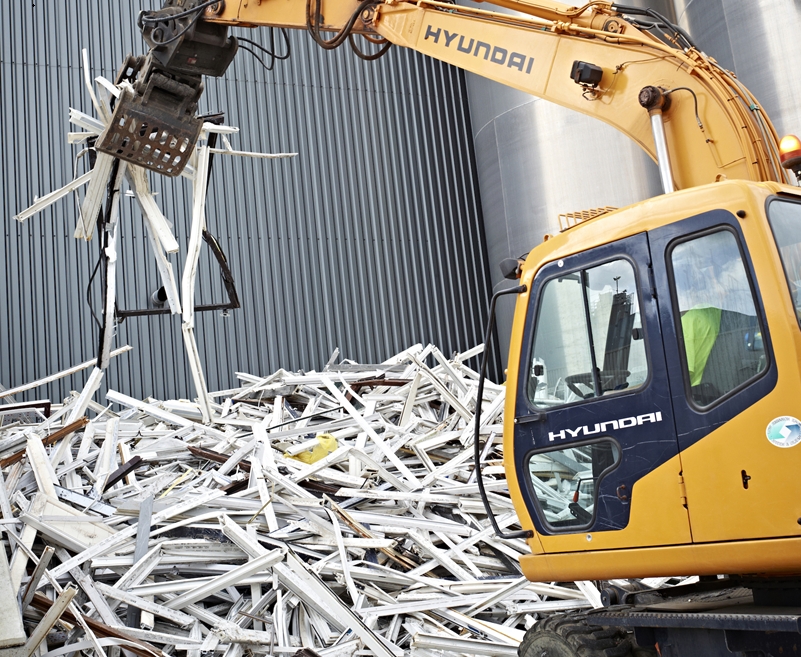Hunt’s Headlines – Industry Reacts
Jeremy Hunt’s autumn statement has been welcomed for cutting National Insurance and making tax easier for the self-employed. Being able to claim tax...
Read Full Article
“There are very few things which we can be certain about but the importance of sustainability in construction, in home improvement, in each and every aspect of our lives, is one,” says Rob McGlennon, the commercial director at Deceuninck in the UK.
“Pretending it’s not happening isn’t an option” he continues. “Companies that can’t evidence – and I mean evidence – their green credentials are going to be locked out of new build and very soon, home improvement.
“And that’s something progressive window and door companies should and are, embracing.”
Getting the pitch right
Commercial window fabricators have had to be able to demonstrate their environmental commitments as a key element in winning business for decades but that’s now something which should also, according to the Deceuninck boss, be part of the pitch for trade fabricators and installers.
“I was recently at an event with a group of installers who were talking about sustainability. One of those installers dismissed its importance. It was one of those tumble-weed moments and no one said anything, other than I said that I was surprised that it didn’t resonate with consumers,” says McGlennon.
“Later that day a couple of installers grabbed me and said that they hadn’t wanted to contradict the guy who had been speaking but that they were regularly asked by homeowners if products were manufactured sustainably. They said that they were using the recovery and recycling of old PVC-U windows as a way to win business.
“That sums up neatly where we find ourselves. There are companies who don’t and may never see the opportunity and those that will, are and who are quietly already levering a commercial advantage from it.”
Housing stock deficiency
McGlennon argues that there are two factors that are converging to bring a certain amount of inevitability to proceedings. The first being the state of the UK’s notoriously energy leaky housing stock.
Around 75 per cent of the residential properties that will be occupied in 2050, already exist. This makes improving the energy efficiency of our existing housing stock key if the government is to reach its own targets to cut UK carbon emissions.
“The consultation on the Future Homes Standard closed at the end of March,” says McGlennon. “While it may not quite have been the watershed moment that we were expecting, there are still big ramification s for the window and door industry.
“If adopted, the Home Energy Model which shifts testing of window and door performance away from the standard window model to an assessment of performance against actual window dimensions. This is a practical shift which redefines how we measure energy efficiency and will transform the new build landscape.
“The legislative ‘stick’ is however, only one of the drivers. Increasing end-user awareness and expectation, the very tangible impact that climate change is having on our planet is driving a bigger shift.
“People expect the products that they purchase, from electric cars to windows, to deliver an environmental benefit.”
This is backed up by research commissioned by Deceuninck and conducted by YouGov, which shows that more than two-thirds of UK homeowners (68%) would choose windows and doors with a higher recycled content, over and above products which don’t contain recycled content or which did so at lower levels.
The study also found that 38% would be prepared to pay more for home improvement products that had higher recycled content and reduced impact on the environment.
Doing the right thing
“Everyone knows what they should be doing.” McGlennon says, “This isn’t an epiphany moment, we know how important sustainability is. What’s different is that now there is a very clear and tangible connection between running a greener business and fitting a more sustainable product and making more money.”
Science Based Targets
Deceuninck has established a lead on sustainability based on its’ commitment to the Science Based Targets (SBTi) programme, with a headline pledge to cut the CO2 emissions from its own operations (Scope 1&2) by 60% by 2030 from a 2021 baseline.
Cutting emissions by 21% last year puts Deceuninck, which won the G-Award Sustainability Initiative category in 2022, already ahead of target.
Carbon footprints
It followed up its 2022 win last year claiming the G-Awards Marketing Campaign of the Year, for its movement to give fabricators and installers the tools to work out, evidence and communicate their own carbon footprints and green credentials including its carbon and energy calculators and sustainability marketing toolkit.
“If you aren’t measuring your carbon footprint; if you aren’t working to lower it; and if your supply partners can’t evidence what they’re doing to lessen the impact their operations have on the environment, then you should know – your competitors are,” says McGlennon.
“The direction of travel is one way. Your business needs to be more sustainable. Deceuninck is working towards that and so too are our customers.
“It’s the right thing to do and it’s winning them, business too.”
Picture: Deceuninck UK has European-wide access to the most advanced recycling centres for PVC-U and has a large portfolio of products that contain re-processed plastic.
Article written by Brian Shillibeer
12th January 2025